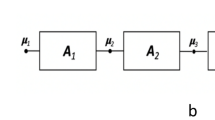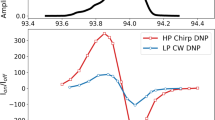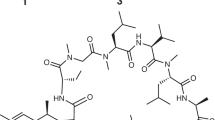Abstract
TORREY1 has discussed the possibilities of using a relatively rapid approach to resonant conditions as a method of searching for unknown nuclear resonances, and has described methods in which H 1 (the radio-frequency field) has been pulsed. Where the establishment of resonance conditions is rapid compared with the spin-lattice relaxation time, this method gives theoretically a larger nuclear signal than that available in cases where the resonance is excited continuously or frequently. We have found that a method whereby H 1 is fixed and H 0 (the D.c. magnetic field) is rapidly swept over a relatively wide range provides not only a simple method of demonstrating nuclear resonance effects, but also one that has possibilities in rapid searching for unknown resonances.
This is a preview of subscription content, access via your institution
Access options
Subscribe to this journal
Receive 51 print issues and online access
$199.00 per year
only $3.90 per issue
Buy this article
- Purchase on Springer Link
- Instant access to full article PDF
Prices may be subject to local taxes which are calculated during checkout
Similar content being viewed by others
References
Torrey, H. C., Phys. Rev., 76, 1059 (1949).
Bloch, F., Phys. Rev., 70, 460 (1946).
Author information
Authors and Affiliations
Rights and permissions
About this article
Cite this article
TAYLOR, K. A Rapid Method of obtaining Nuclear Magnetic Resonance Spectrograms. Nature 172, 722–723 (1953). https://doi.org/10.1038/172722a0
Issue Date:
DOI: https://doi.org/10.1038/172722a0
Comments
By submitting a comment you agree to abide by our Terms and Community Guidelines. If you find something abusive or that does not comply with our terms or guidelines please flag it as inappropriate.



